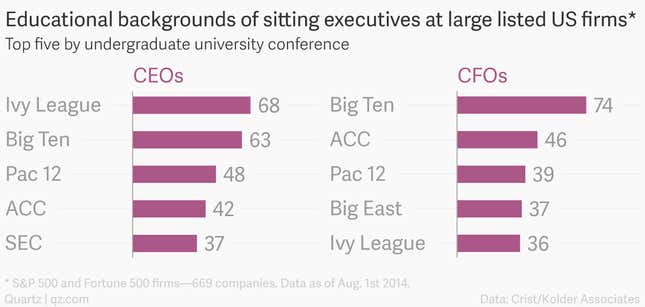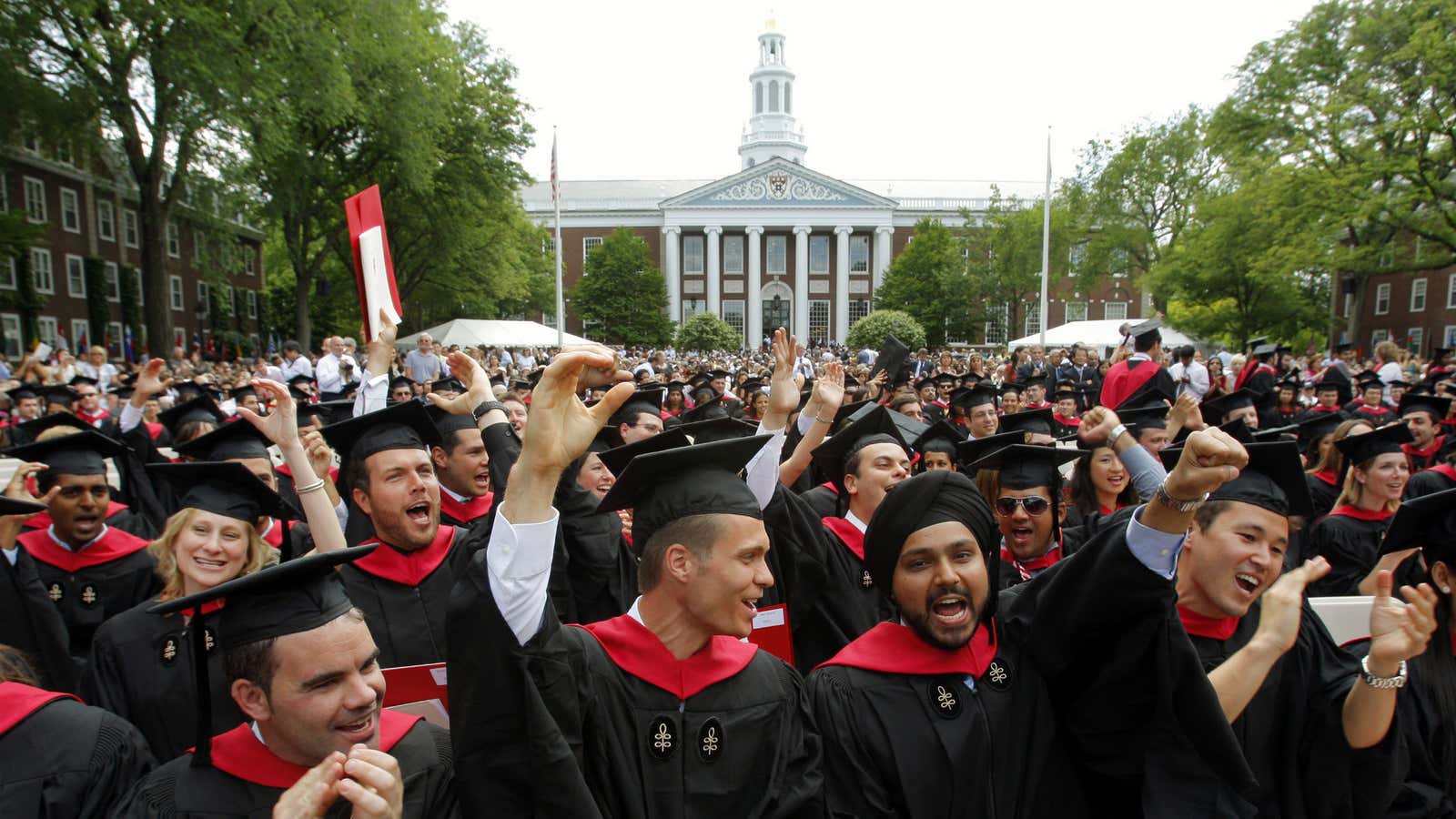Top corporate teams are often led by an aggressive, visionary chief executive and a cautious, conservative chief financial officer. The CEO plots the company’s strategic plan while the chief financial officer makes sure that the numbers add up, marshaling the resources required to execute the plan.
This is a generalization, of course, and it breaks down when you consider how many former finance chiefs are making their way to the CEO office. Still, most CEOs and CFOs are cut from different cloth, and there’s proof of that in their educational backgrounds.
That more CFOs than CEOs study accounting is no surprise. But data from the recruitment firm Crist/Kolder Associates shows that where executives went to university is just as telling as what they majored in. The recruiter collects background stats about top executives at the largest listed US firms, and its latest report (pdf) grouped them by the athletic leagues (known in the US as “conferences”) of their alma maters. The study reinforces a well-established trend—namely, that CEOs are produced in the posh environs of the Ivy League, while CFOs come from the Big Ten—a group of large, mostly public research universities in the Midwest:

Three of the top five universities attended by sitting CEOs are in the Ivy League conference, with Harvard and Cornell ranked first and second, respectively. (Princeton ranks fifth.) And for chief executives who went on to get an MBA, more than twice as many chose Harvard than any other business school.
In contrast with their elite East Coast-schooled counterparts, finance chiefs were more likely schooled in the down-to-earth Midwest, with Big Ten members University of Illinois and Indiana University at the top of the rankings. (Nearby Notre Dame sits in third place.) The CFOs who went to business school also tended to stay in the Midwest, choosing the quant-heavy curriculum at the University of Chicago over other options.
Naturally, an accounting grad at Harvard has decent shot of becoming a CFO, just as a hotshot marketing scholar from Illinois could well rise to CEO. But playing to type, the natural evolution of American corporate boardrooms quite often seems to produce a combination of Ivy League brains to do the blue-sky thinking, with Big Ten brawn to crunch the numbers.
